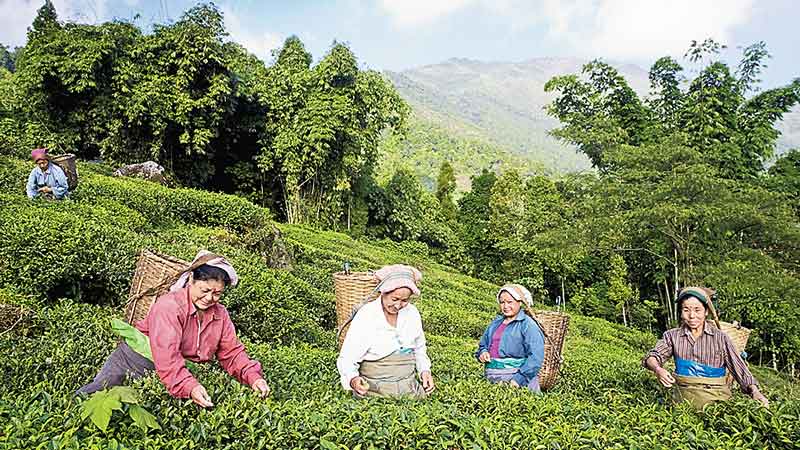Jungpana, one of the most celebrated tea estates of Darjeeling, has a new owner.
The Santosh Kumar Kanoria Group, which owns the tea exporting house Balaji Agro International, has bought the garden that arguably ranks at the top of the leaderboard for Darjeeling teas.
Chaired by Anshuman Kanoria, the group bought Jungpana along with Goomtee tea estate, marking a rapid reshuffle in the ownership of the two gardens over the past three years.
“We are excited to add a garden like Jungpana to our tea portfolio. We also recognise the challenges associated with operating an estate in Darjeeling, especially during these uncertain times,” Anshuman Kanoria said.
Started by British planter Henry Montgomery Lennox in 1899, Jungpana is spread out over the south-facing slopes of the hill at an altitude of 2,400-6,100 metres, and produces just about 65,000 kg of tea annually.
The area took its name after a valiant Gorkha Jung Bahadur, who was mauled by a leopard while trying to save his British master. As he lay dying, he asked his master for some “pana”, or water. He was taken to a nearby spring and given water but died soon after.
The area came to be called Jungpana: a combination of the man’s first name and his hoarse cry for water.
The garden was with the family of Shantanu Kejriwal who bought it from the Ranas of Nepal in 1956. After the devastating strike at the hills in 2017, Kejriwal sold it to city-based businessman Sanjay Agarwal. The acquisition doesn’t seem to have turned out well.
“My focus will be to produce quality tea which can fetch good prices to ensure a low-yield garden is run profitably,” Kanoria said this evening.
He also hoped that Balaji Agro’s domain knowledge in marketing top quality tea to the connoisseurs in Japan, Europe and the US will come in handy to run the gardens efficiently.
“I also want to diversify the market base in India for these gardens but the tea will not be available off the shelf as commodities,” Kanoria, who claimed to have paid top dollars for the gardens, said.
The transaction took place at a time the pandemic hit the demand for specialty teas. Many of the 87 gardens in Darjeeling are up for sale as export prices remain tepid due to competition from cheaper Nepalese varieties.
The gardens were badly hit during the lockdown a year ago as they could not pluck the first flush — the season’s early harvest which fetches the estates as much as 35 per cent of their annual earnings.
The Kanorias are also taking heart from the acquisition of Tindharia estate, adjacent to Goomtee, sometime back. The garden has turned around, producing green tea exclusively and exporting 75 per cent of the yield.
“I have the best green tea garden in Darjeeling and I always wanted a match for it in black tea. In Jungpana, my wish has come true,” Kanoria signed off.











